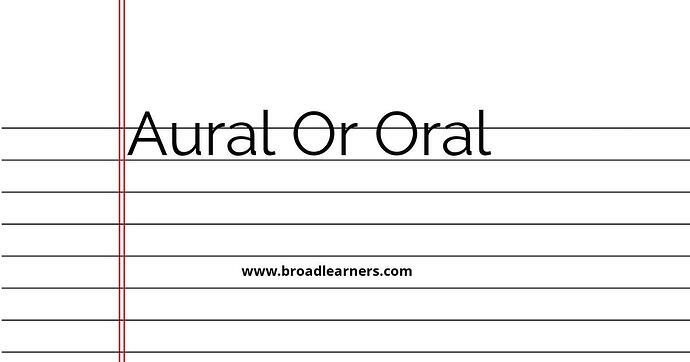'Aural' and 'oral' are commonly confused words in English grammar. Understanding the difference between 'aural' and 'oral' is important to use them correctly in written and spoken English.
'Aural' is an adjective that relates to the sense of hearing or the ears. It is used to describe something that is related to or perceived through the sense of hearing.
'Oral' is an adjective that relates to the mouth or spoken language. It is used to describe something that is related to or done by the mouth, or to refer to spoken communication.
Let's take a closer look at the meanings and usage of 'aural' and 'oral'.
| 'Aural' | 'Oral' |
|---|---|
| The word 'aural' is used to describe something that is related to or perceived through the sense of hearing. | The word 'oral' is used to describe something that is related to or done by the mouth, or to refer to spoken communication. |
|
|
To remember the difference between 'aural' and 'oral', it can be helpful to focus on the meanings and associations of each word:
- 'Aural' is related to the ears and hearing, so think of the 'a' in 'aural' as representing 'audio' or 'auditory'.
- 'Oral' is related to the mouth and speaking, so think of the 'o' in 'oral' as representing 'oral communication'.
Here are some examples of correct usage:
- She has excellent aural skills and can identify musical notes easily.
- The oral history of the tribe has been passed down through generations.
- He is studying aural perception in his research on sound.
- The oral agreement was confirmed in writing.
Remembering the correct usage of 'aural' and 'oral' will improve your grammar and communication skills.
